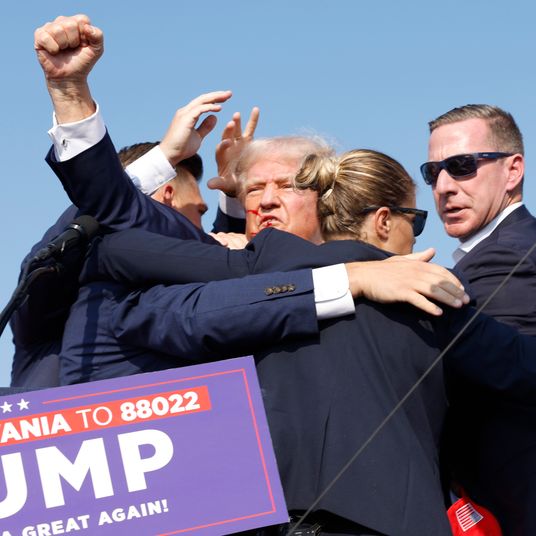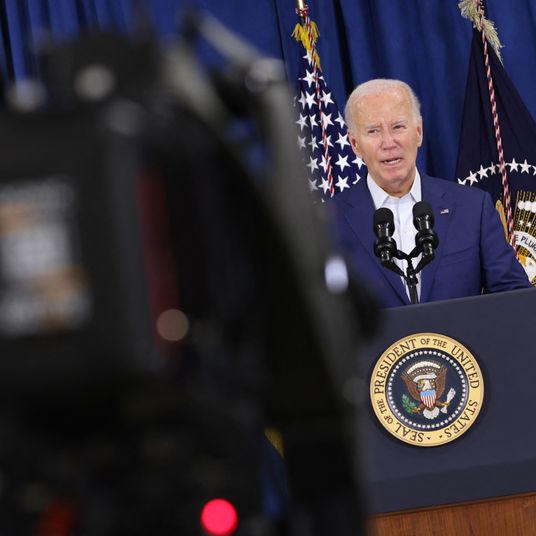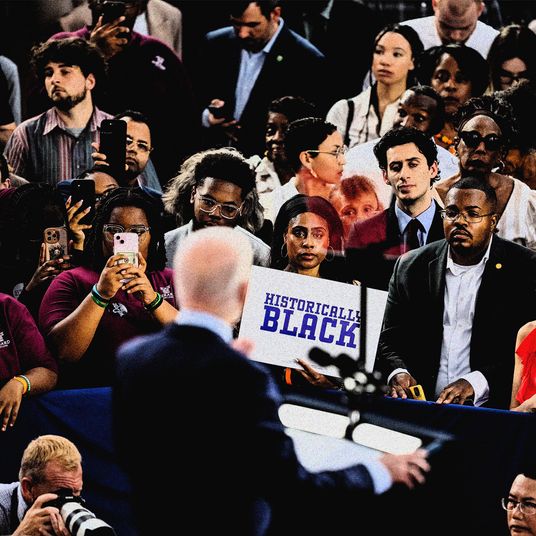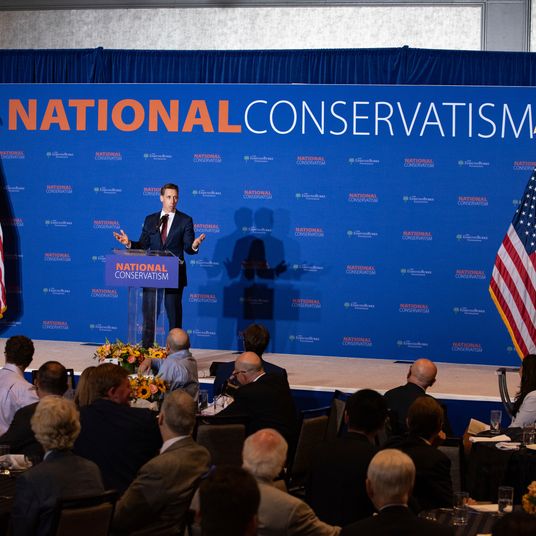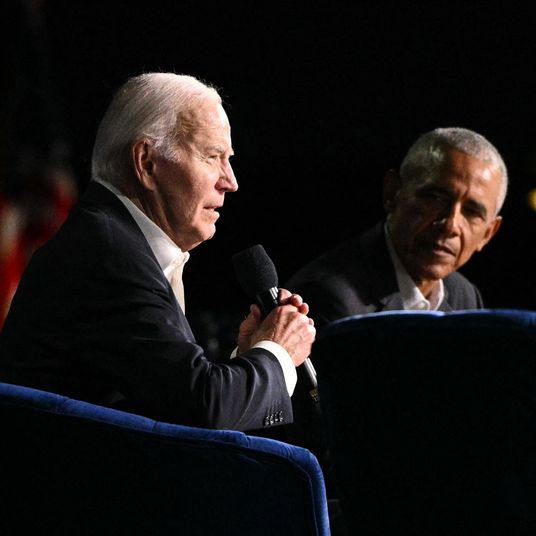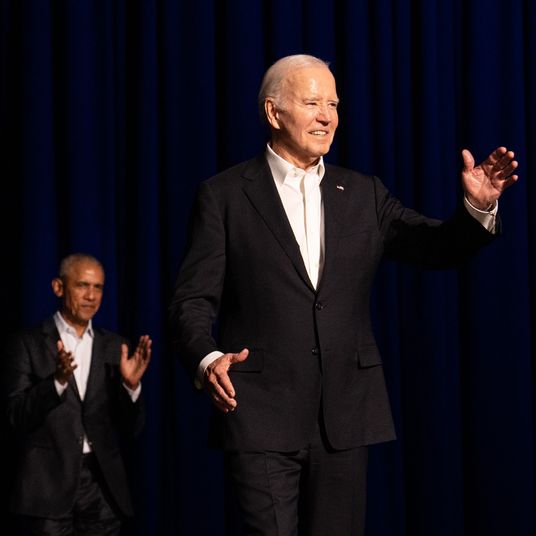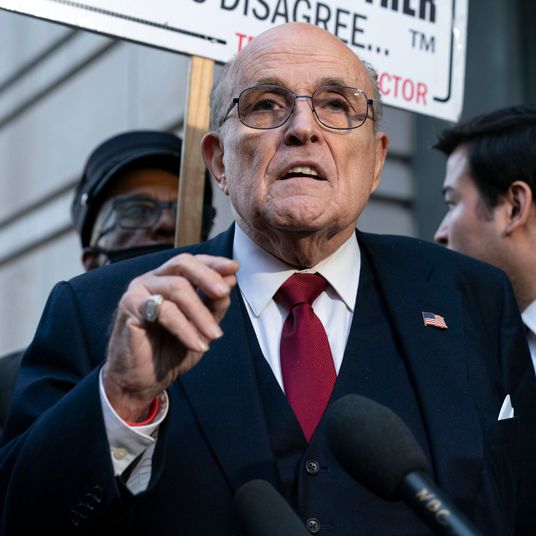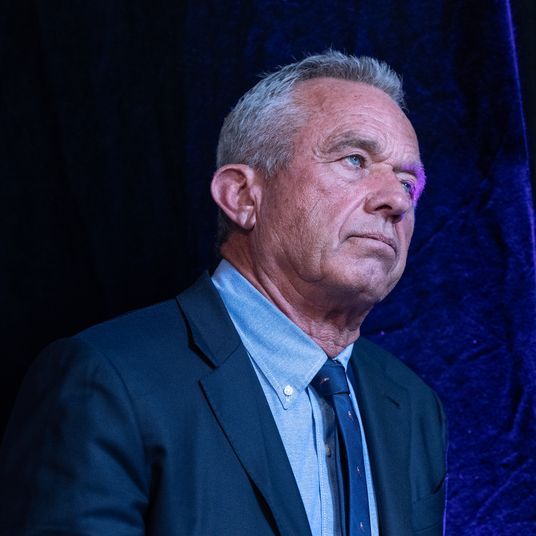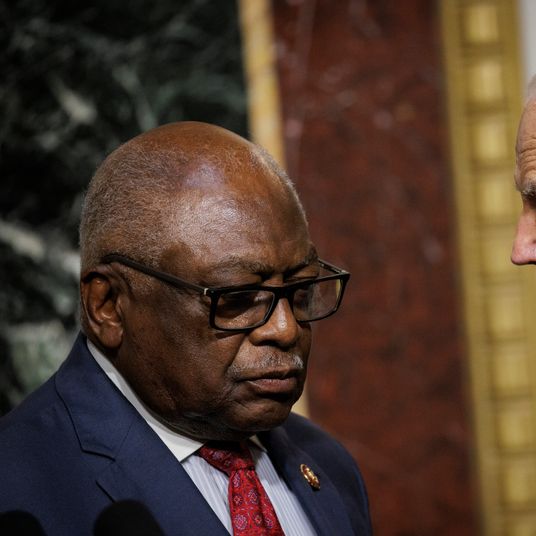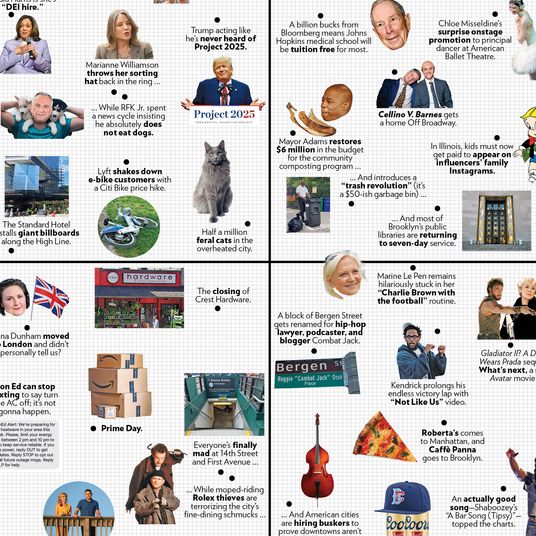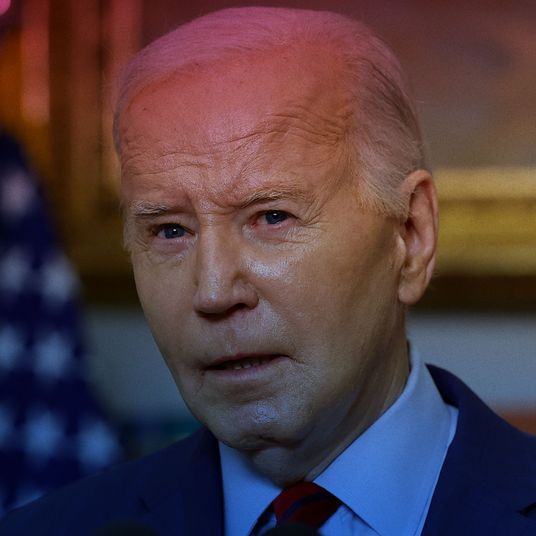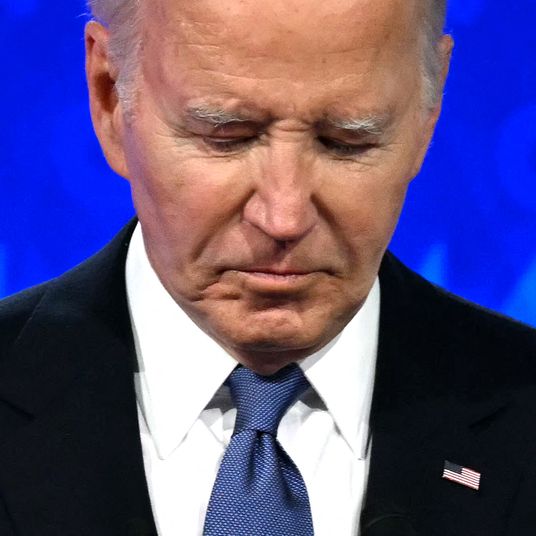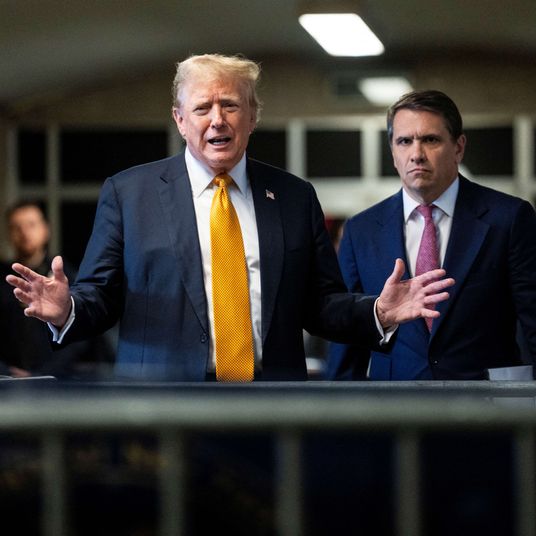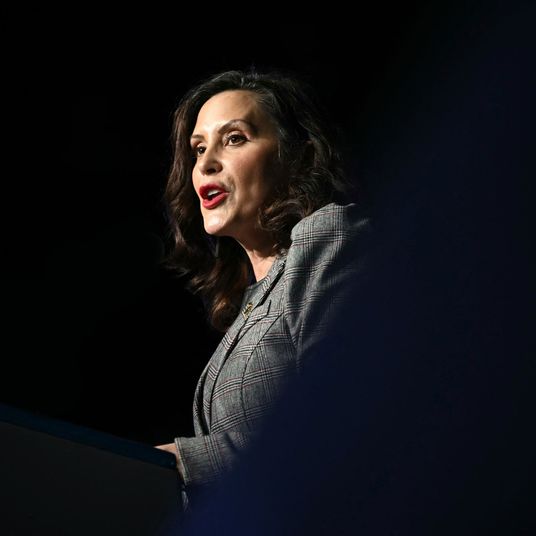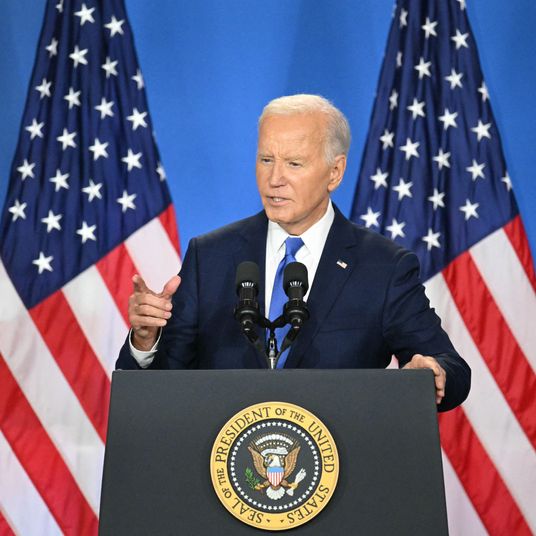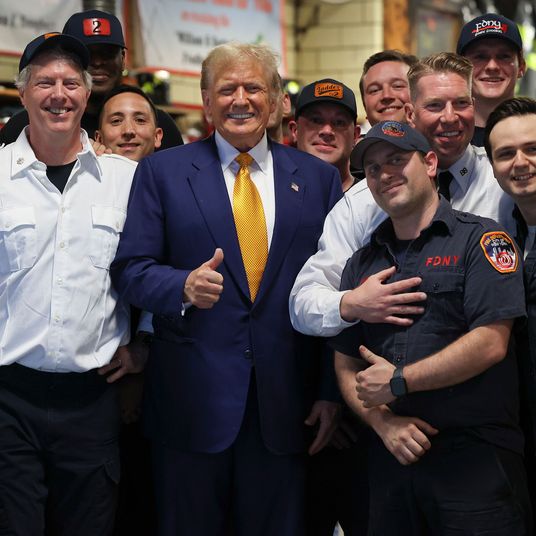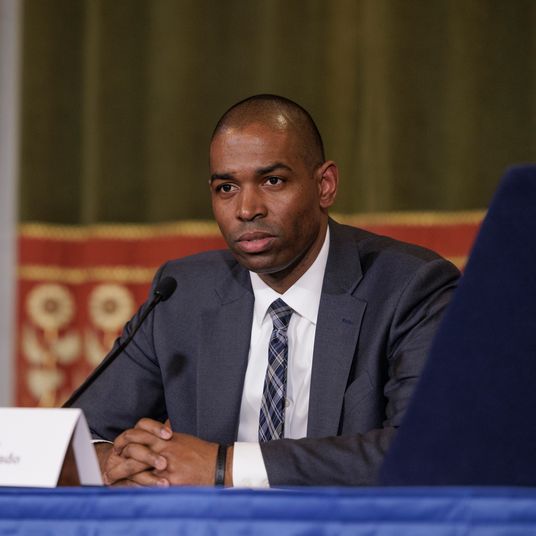
Speculation about Donald Trump’s choice for a 2024 running mate will remain a hot topic until the moment he makes his decision known, presumably at some point prior to the first gavel falling at the Republican National Convention in Milwaukee on July 15. The only thing we know for sure is that he will not choose Mike Pence again, and in fact, the Pence precedent of “betraying” Trump on January 6, 2021, is expected to have an outsize impact on the veep selection. Absolute loyalty to Trump, up to and including retroactive support for his effort to overturn the 2020 election results, is essential.
But the real question for Republicans thinking beyond 2024 is whether the choice will affect the direction of the GOP once Trump is no longer center stage. And it’s not just a question of which ambitious politician might share some of Trump’s reflected glory. Trump is not merely the leader of the Republican Party; he is also the founder of the MAGA movement that has now conquered the GOP via its three-time presidential nominee. If this movement has a future of its own, it will presumably need a leader, and Trump’s choice for his running mate may well represent a moment when the torch is provisionally passed.
One MAGA-adjacent group of young ideologues attending a Turning Point USA conference in Detroit over the weekend clearly thought the choice of a movement successor is pretty clear, as the Washington Examiner reported:
Sen. J.D. Vance (R-OH) won a straw poll at the Turning Point USA Action conference to be former President Donald Trump‘s running mate.
Vance won almost three times more votes than the next in line, with 43%, according to Turning Point USA head Charlie Kirk. Sen. Tim Scott (R-SC) won 15.4% of the vote, followed by Sen. Marco Rubio with 7.7%, and Gov. Doug Burgum (R-ND) with 7%. According to the Daily Mail, 1,986 attendees of the conference were asked their preference.
This makes sense if you think about it for a moment. The 67-year-old Doug Burgum is nobody’s idea of a bright young rising star; you could say the same about other veep possibilities, like the 72-year-old Ben Carson or the 72-year-old Marsha Blackburn. Tim Scott and Marco Rubio, both in their 50s, are more suitable for future leadership, but both men have a lot of pre-MAGA baggage and some suspicious contemporary views, particularly when it comes to issues like aid to Ukraine (a definite no-no for serious America Firsters). Among Republican millennials, J.D. Vance has one veep-worthy peer competitor, New York congresswoman and House GOP leadership figure Elise Stefanik, who will turn 40 on July 2, exactly one month before the Ohioan hits the big 4-0. But while Stefanik has aggressively met every Trump loyalty test over the past couple of years, she has no real ideological profile and, in fact, was a bit of a RINO squish back in the day.
Vance, by contrast, was a right-wing populist intellectual — indeed, a celebrity right-wing populist intellectual as the author of the best-selling memoir Hillbilly Elegy — before he ran for the Senate in Ohio in 2022. He has positioned himself as the champion of the white working-class voters at the heart of the MAGA coalition, and has often articulated their grievances against the domestic and international policies of globalist elites. Unlike most prominent Republicans, Vance has no embarrassing history of support for free trade, entitlement reform, or “forever wars.” Yes, he sounded briefly like a Never Trumper in 2016, publicly denouncing Trumpism as the “opioid of the masses,” but he’s long recanted this initial skepticism, and is now a leading rationalizer of the former president’s 2020 election denial. He’s the veep prospect who seems least likely to backslide toward the old-school Reagan conservatism that MAGA enthusiasts undoubtedly fear. His enthusiasm for Hungarian strongman Viktor Orban is a good indication that Vance would represent a further devolution toward European-style authoritarianism.
But a key question about Vance is whether his youth and ideological credentials might spur opposition among Trump influencers with their own ambitions. By most accounts, Vance’s Missouri colleague Josh Hawley is another youngish (only 44) right-wing populist ideologue who might represent the next iteration of America First Republicanism. The only slightly older Mississippi senator Tom Cotton (47) may be a mite too internationalist in his foreign policy and defense views for the pure MAGA activists, but he has a proven own-the-libs mentality that could still make him attractive to those looking for a Trump successor. And for the more dynastic-minded, there’s always Donald Trump Jr. waiting in the wings. Might any or all of these potential future leaders block Vance from taking a big step toward the MAGA succession?
There’s only one opinion on the veepstakes that ultimately counts, of course. But Trump’s decision can tell us whether the MAGA movement is a serious and permanent force in Republican politics or simply a cult of personality that will fade or even disappear when he’s gone. A Trump-Burgum ticket would confirm that the former president isn’t thinking a single minute beyond his own comeback bid and would prefer a running mate that adds or subtracts nothing from his appeal. Trump-Vance suggests a movement with a scary future in store for all of us.
More on politics
- Trump Assassination Attempt Suspect Identified: Live Updates
- The Secret Service Agent Who Caught a Bullet for Reagan on the Trump Shooting
- Republican Lawmakers Immediately Blame Biden for Trump Shooting






